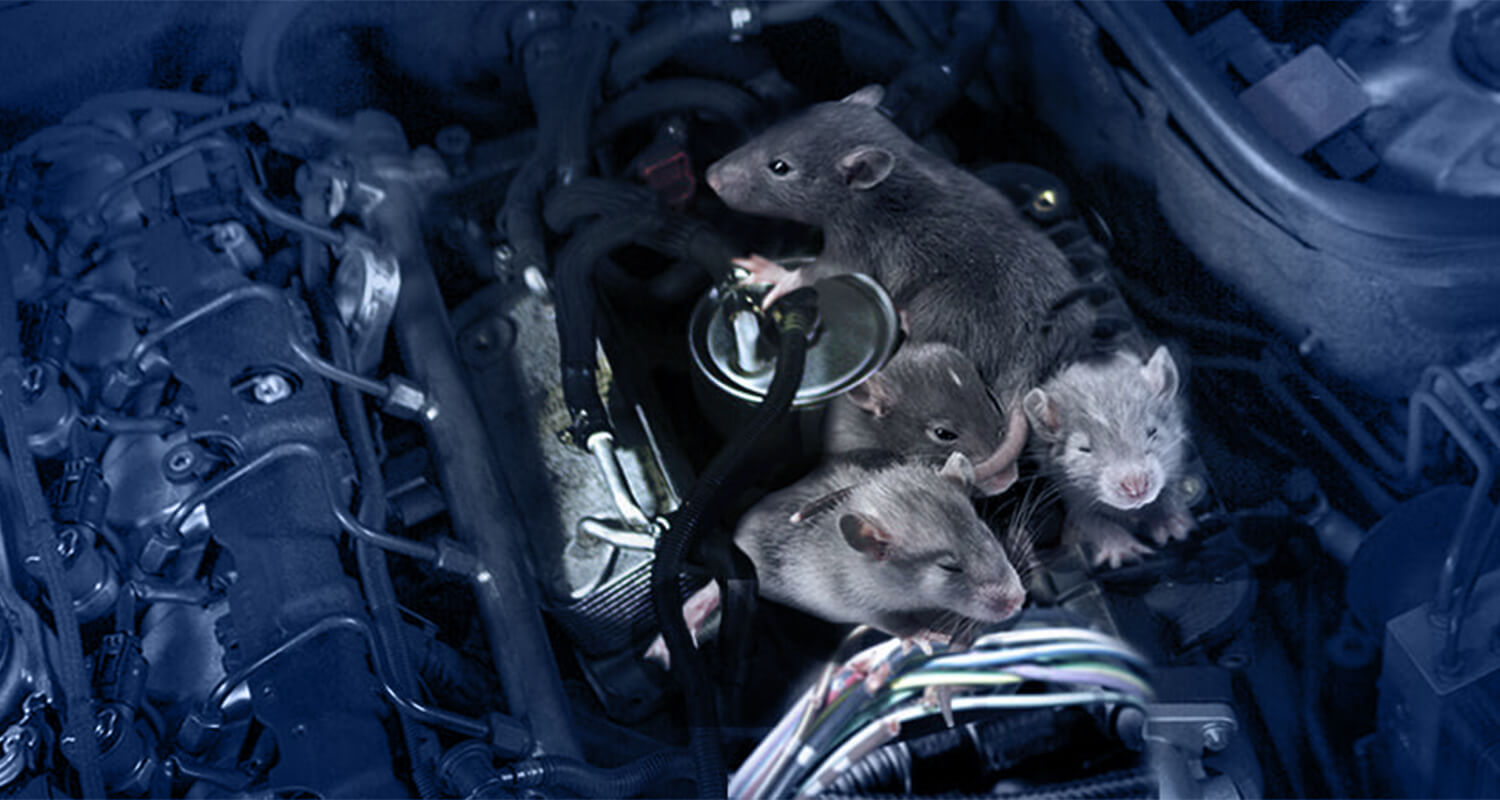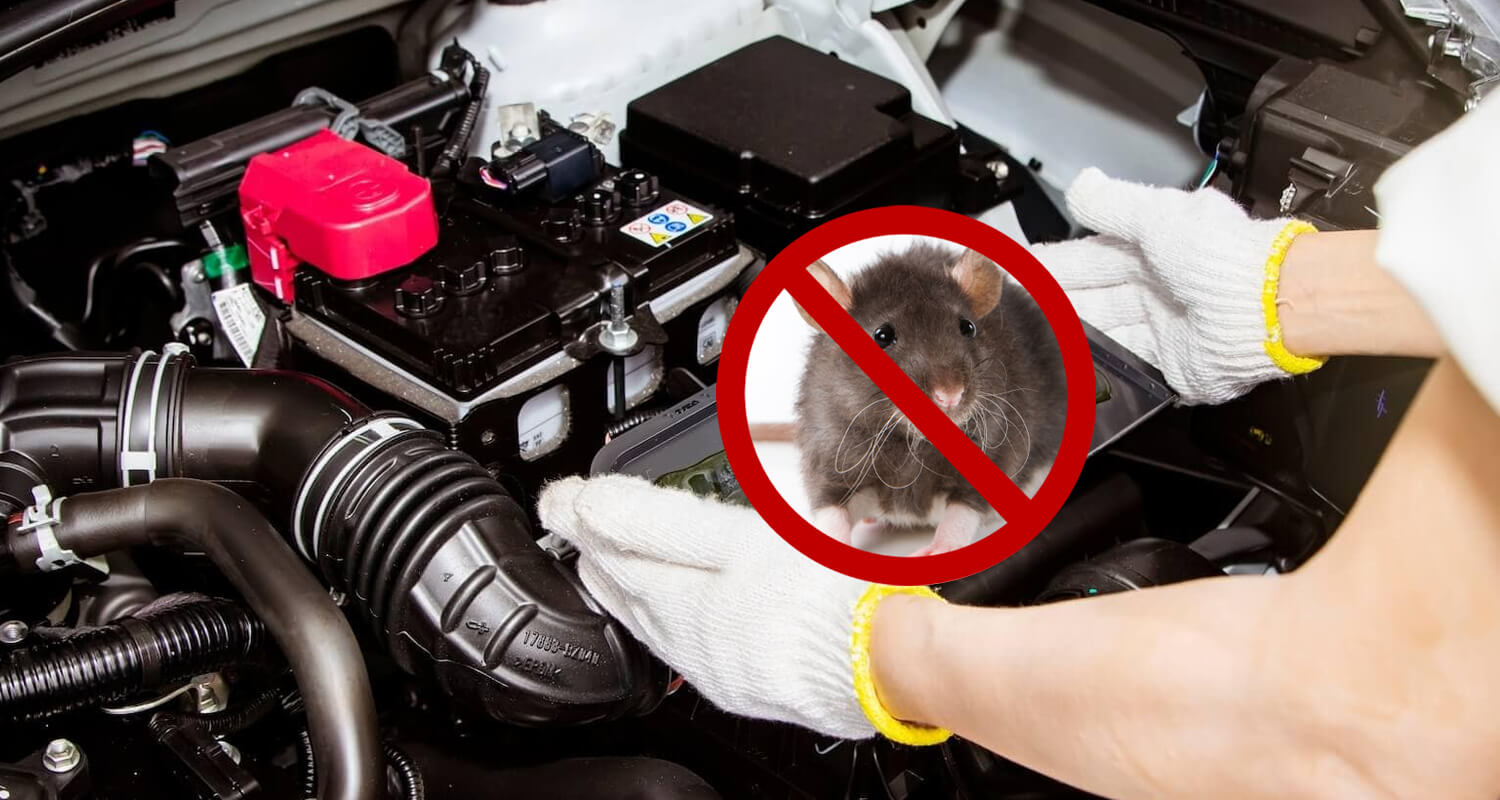Buy, sell and find just about anything using the app on your mobile.

Have you ever gotten into your car to go somewhere, only to realize that something is wrong? Terrible feeling, isn’t it? Sometimes the engine won’t start for no reason and the insides of the car may smell funky. If yes, rodents may be the source of your problem!
Rat infestation in automobiles have long been a worry in India, endangering the safety of drivers and necessitating expensive repair bills. Though you can’t always stop rats from living in your neighborhood, you can use a few strategies to keep them away from your car. To keep your automobile secure and rodent-free, I have compiled a list of tried-and-true methods for warding off rodents. Plus, OLX makes it easy to locate solutions to rat problems in your vehicle.

Numerous common rodent species found in India, including mice, rats, and squirrels, have adapted to live in urban environments by using parked cars as sources of warmth, cover, food leftovers, and proximity. Urbanization and population density have only compounded the problem.
Despite being tiny, rodents can cause serious damage to your car, if not tackled well in time. But how precisely do they harm it, and what problems can result from that harm? Let’s explore and find out.
Rodents—mice and rats— are well-adapted to making their homes in small spaces, such as gaps in your garage door or holes in your car body. As they settle in for a long-term living arrangement, they will probably seek warmth behind the engine or wheel wells once inside.
It helps to be proactive and keep an eye out for symptoms of infestation—any strange noises coming from under the hood or strange smells coming from within could be signs of rats attempting to make themselves at home!
So how can you keep rats away from your car? The key lies in being preventative. Maintaining a clean and clutter-free garage will reduce the number of places where rats could hide and breed. To prevent rodent access even more, seal any gaps or openings close to the car’s base.
Regular maintenance and inspection are essential to identify any early indications of rodent activity and prevent more damage.
Read more: Top Selling Cars In India [May 2024]

The first line of defense is to remove any potential food sources that might attract rodents to your car. This includes crumbs, wrappers, and leftover fast food containers. Clean out your car regularly, paying attention to crevices and under the seats where food debris might accumulate. If you park in a garage, make sure to keep pet food, birdseed, and other potential rodent attractants in sealed containers.
Once you’ve removed the food temptation, it’s time to close off any potential entry points for rodents. Check around the hood, trunk, and undercarriage for small gaps or holes that rodents could squeeze through. These openings can be around wires, hoses, or vents. You can seal these gaps with caulk or metal mesh to deter rodents from entering your car’s cozy interior.
Several repellents can discourage rodents from taking up residence in your car. Peppermint oil is a natural option with a strong smell that rodents dislike. Soak cotton balls in peppermint oil and place them strategically around your car, replacing them every few days. Alternatively, electronic repellents emit high-frequency sounds that are inaudible to humans but unpleasant to rodents. These devices can be plugged into your car’s cigarette lighter or placed under the hood.
Where you park your car can also play a role in keeping rodents away. Ideally, park in a well-lit area, as rodents prefer dark hiding spots. Avoid parking near dumpsters, overgrown vegetation, or areas with known rodent activity. If you park in a garage, make sure to keep it clean and free of clutter that might attract rodents.
If you suspect rodents have already made a home in your car, take immediate action. Look for signs of nesting materials, droppings, or chewed wires. Set traps or call a professional pest control service to remove the rodents and address any damage they’ve caused. By following these tips, you can keep your car rodent-free and avoid costly repairs down the road.
Alongside natural repellents like peppermint oil, electronic gadgets offer another line of defense. These devices emit vibrations or high-frequency sounds that are undetectable to humans but unpleasant to rodents. Many are motion-sensitive and specifically designed to prevent nesting. Unlike repellents that need to be replaced regularly, these gadgets are a one-time purchase solution.
An unused car can become a haven for rodents. If you don’t drive your car frequently, it’s recommended to start the engine and let it run for a while, even if you’re not going anywhere. The noise and vibration can help deter rodents from taking up residence. For additional protection, consider using a reliable car interior rodent repellent alongside this method. The key is to avoid letting your car sit idle for extended periods.
Cats are a natural enemy of rodents, and their presence can deter mice and rats from approaching your car. Similarly, the scent or presence of a dog can also make rodents wary of your vehicle. If you have pets, allowing them near your car can act as a biological deterrent.
For those who prefer a more traditional approach, mousetraps remain a viable option. These traps use bait to lure rodents and then capture them. There are also sticky-tape traps available that achieve the same outcome.
While using rat poison might seem like a quick fix, it’s important to consider the potential drawbacks. First, a poisoned rodent might die inside your car, creating a foul odor. Second, if the rodent dies outside and is eaten by another animal, that predator can also be poisoned.
Several physical and substance-based solutions can help deter rats from making your car their home.
While all of the above can prove to be effective, consulting a professional pest control service in your area is always recommended.
Rat infestations in vehicles can be a frustrating experience for any driver. But you may successfully keep these unwanted guests out of your car by using a combination of preventive measures and rat-repellent techniques. To keep your car free of rodents and to ensure your peace of mind while driving, choose the best solution for your needs, whether it is an ultrasonic device, natural cures, or conventional traps.
Rodent repellents and other goods may be easily found on OLX, allowing you to protect your automobile and rest easy knowing that rats are kept away. That being said, why not act now? Use OLX to begin rodent-proofing your vehicle right now!
Rats like to live in cars because they are warm, safe, and full of food. The engine bay and interior of a car are great places for rats to nest, and crumbs, food spills, and wire insulation can be used as food and building materials.
Rat droppings, chewed wires or furniture, nests made of shredded materials, bad smells, and strange noises coming from the engine or inside your car are all signs that you have rats in your car.
Yes, rats can do a lot of damage to a car’s wires, seats, insulation, and other parts by chewing on them to make nests or fill their need to chew. This harm can cause wiring issues, engine problems, and fixes that cost a lot of money.
You can keep rats from getting into your car’s wiring by using rodent-repellent sprays or coatings, putting wire mesh or conduit bands around weak spots, or using electronic devices that make high-frequency sounds that scare rats away.
Yes, there are some eco-friendly ways to keep rats out of your car, like using peppermint oil, cloves, or vinegar, which are all-natural pesticides. Additionally, keeping your car clean and free of food scraps can help keep rodents away.